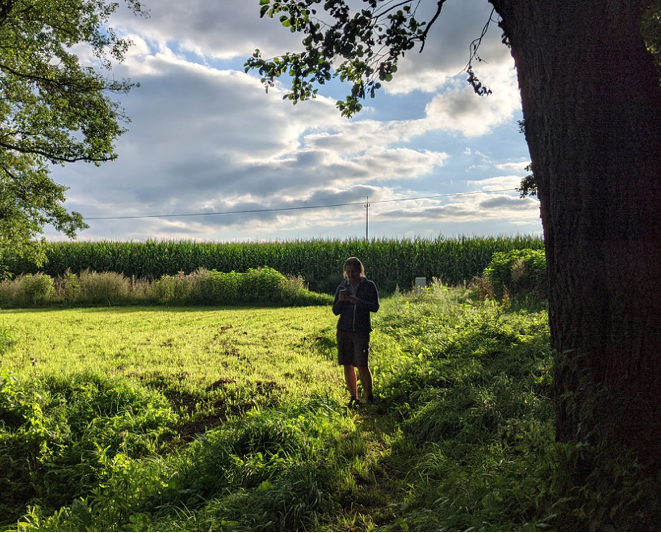Dr. Edyta Łaszkiewicz explains:
We wanted to answer the question whether informal green spaces (selected wastelands) and formal urban green spaces (selected city parks and squares) differ in terms of their ecosystem services (ES) provisioning. Detailed environmental measurements were carried out for as many as 75 green spaces located in Warsaw. The amounts of collected water, absorption of carbon dioxide, biodiversity, temperature reduction were examined and a survey was carried out to assess attractiveness of a given area to the inhabitants.
And she adds:
The obtained results indicate that for the majority of the examined parameters there is no statistically significant difference between parks and squares, and wastelands. The differences arise in the case of carbon dioxide absorption, but these differences are in favour of wild vegetation. In a broader context, these results encourage to pay more attention to informal green space as a valuable – from the point of view of ecosystem services – resource.
The report states, among other things, that maintaining greenery in the city generates huge costs, while by allowing nature to do its thing, we can obtain comparable benefits, which was measured in detail by scientists from the Warsaw University of Life Sciences and the University of Lodz. City greenery cleans the air, absorbs carbon dioxide, retains water, cools down and above all, enables us to rest in a healthy way.
When nature is allowed to develop spontaneously, it will provide benefits comparable to cultivated parks, and often even greater. This is so called "The value of doing nothing (...)" The research results have been published in the Ecosystem Services journal ("The value of doing nothing - How informal green spaces can provide comparable ecosystem services to cultivated urban parks"). Dziennik Łódzki has already written about the research.
#UniLodz through its activities shows concern for the environment, which is also evidenced by other studies by scientists from the Faculty of Economics and Sociology of the University of Lodz. The team of prof. Jakub Kronenberg, which dr Edyta Łaszkiewicz is a member of, has developed more effective methods of managing natural environment in cities – parks, squares but also green wastelands (article - in Polish). In addition, the researchers checked the losses in the urban forest stand of Lodz over the years 2010-2019. The results have been presented in an article published in Landscape and Urban Planning.
Source: Dr. Edyta Łaszkiewicz (Faculty of Economics and Sociology, University of Lodz), Warsaw University of Life Sciences, Dziennik Łódzki
Edit: Promotion Centre, UL

